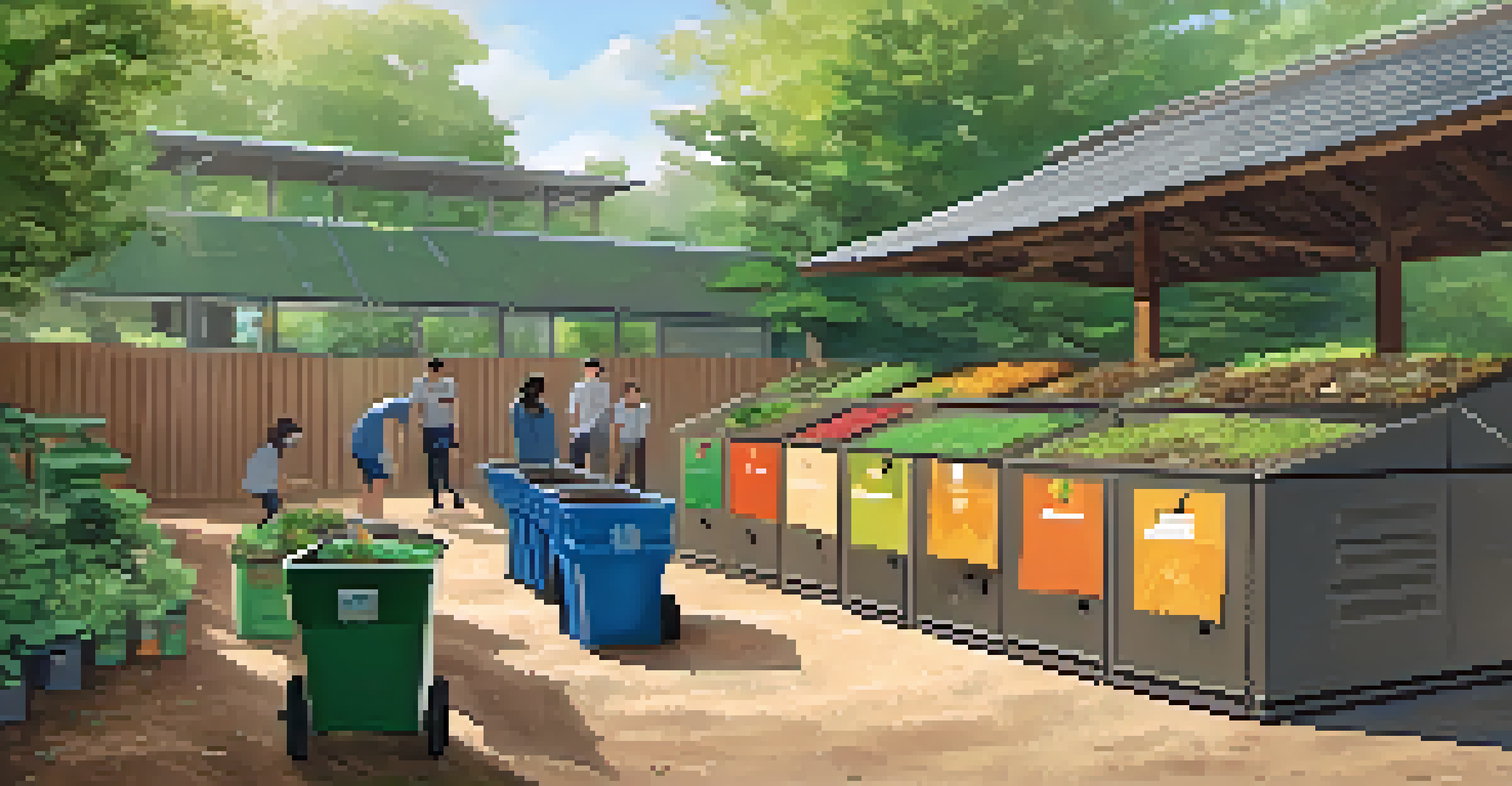Reducing Waste: Eco-Conscious Practices in Dojos

Understanding Waste in Dojos: The Need for Change
Dojos, like many other spaces, generate waste that can be reduced significantly. From plastic water bottles to disposable training gear, every little bit adds up. As practitioners, it’s important to recognize our role in fostering an eco-conscious environment—both for our students and the planet. Acknowledging the waste we produce is the first step toward meaningful change.
We do not inherit the earth from our ancestors, we borrow it from our children.
The martial arts community has a unique opportunity to lead by example. By adopting eco-conscious practices, we not only protect our environment but also inspire others to follow suit. Imagine a dojo that prioritizes sustainability, becoming a beacon of change in the community. This vision can become a reality with small, intentional steps.
In the upcoming sections, we’ll explore practical ways to reduce waste in your dojo. From rethinking supplies to changing how we approach training, each section will provide actionable insights. Let’s dive into the eco-friendly practices that can transform your dojo into a sustainable hub.
Choosing Sustainable Training Gear and Equipment
One of the easiest ways to reduce waste in your dojo is by selecting sustainable training gear. This could mean investing in uniforms made from organic materials or opting for mats crafted from recycled products. By making mindful choices, you not only help the environment but also support brands that prioritize sustainability.

Consider implementing a gear exchange program. This allows students to trade or donate their gently used uniforms and equipment, reducing the need for new items. It fosters a sense of community and encourages students to think twice before tossing out their old gear. Plus, it can save everyone money!
Embrace Sustainable Practices
Dojos can lead by example in sustainability by choosing eco-friendly gear and fostering a culture of mindful consumption.
As you curate your dojo's inventory, always look for eco-friendly alternatives. Whether it's biodegradable tape for securing mats or refillable water stations instead of bottled water, each choice contributes to a larger movement. Remember, every small change counts towards reducing our collective footprint.
Minimizing Plastic Use in Your Dojo
Plastic waste is a significant issue, and dojos are not exempt from contributing to this problem. Simple changes, like replacing plastic water bottles with reusable ones, can make a big difference. Encouraging students to bring their own bottles fosters a culture of sustainability and reduces unnecessary waste.
The greatest threat to our planet is the belief that someone else will save it.
Another effective strategy is to rethink your dojo’s marketing materials. Instead of printing flyers or schedules, consider digital alternatives. Not only does this reduce paper waste, but it also allows for easy updates and broader reach through social media and websites.
Finally, evaluate all the plastic items used in your dojo. From packaging to promotional materials, look for opportunities to replace them with eco-friendly options. By taking these steps, you can significantly cut down on plastic waste and demonstrate a commitment to sustainability.
Implementing a Recycling Program
Establishing a recycling program in your dojo is a straightforward yet impactful way to manage waste. Start by placing clearly labeled recycling bins in accessible areas, making it easy for students and staff to participate. When everyone knows where to put recyclables, it encourages responsible waste disposal.
Educate your students and staff about what can be recycled. Many people are surprised to learn that items like certain plastics and paper products can be recycled. Host a brief workshop or share information on your dojo’s social media to raise awareness and ensure everyone is on the same page.
Reduce Plastic Waste
Simple changes, like using reusable water bottles and digital marketing, can significantly cut down on plastic waste in dojos.
Additionally, consider partnering with local recycling organizations to ensure your program is effective. They can provide insights on proper recycling practices and help streamline the process. With a solid recycling program in place, your dojo can significantly reduce its waste output.
Creating a Composting System
Composting is an excellent way to reduce organic waste generated in your dojo, especially if you have a kitchen area. By composting food scraps and other organic materials, you can divert significant amounts of waste from landfills. This not only reduces waste but also creates nutrient-rich soil for local gardens or your dojo’s landscaping.
Start small by designating a compost bin for organic waste. Educate your students about what can be composted, such as fruit peels, coffee grounds, and paper towels. Providing clear guidelines can help ensure that the compost remains uncontaminated by non-organic materials.
As the composting system evolves, consider involving students in the process. This could be a fun, educational activity that teaches them about sustainability. By making composting a communal effort, you foster a sense of responsibility and stewardship that extends beyond the dojo.
Encouraging Mindful Consumption Among Students
A significant part of reducing waste in your dojo involves fostering a culture of mindful consumption among students. Begin by discussing the importance of sustainability during classes, highlighting how their choices can impact the environment. This dialogue can inspire students to think critically about their own habits.
Consider hosting workshops on sustainable living that cover topics like reducing waste, recycling, and choosing eco-friendly products. Engaging students in these conversations can empower them to make more informed decisions, both in and out of the dojo. It’s about creating awareness and encouraging proactive behavior.
Implement Recycling and Composting
Establishing recycling and composting systems in your dojo can effectively manage waste and promote environmental responsibility.
Creating a culture of mindfulness takes time, but it can lead to lasting change. Encourage students to share their sustainable practices and celebrate those efforts within the dojo community. By supporting each other, you can cultivate a strong commitment to reducing waste together.
Measuring Progress and Celebrating Success
Tracking the progress of your waste reduction efforts is crucial for understanding the impact of your initiatives. Consider setting specific goals, such as reducing plastic waste by a certain percentage or increasing composting by a specific volume. Regularly review these goals and adjust your strategies as needed.
Celebrating small victories can also motivate your community to stay engaged in eco-conscious practices. Whether it’s a monthly newsletter highlighting achievements or a special event to recognize efforts, acknowledging progress fosters a sense of pride and commitment among students.

Finally, share your results with the wider community. Highlighting the changes your dojo has made can inspire other dojos and organizations to adopt similar practices. By showcasing your commitment to sustainability, you not only enhance your dojo's reputation but also contribute to a larger movement toward environmental responsibility.